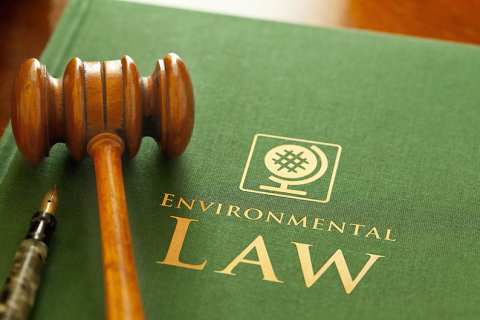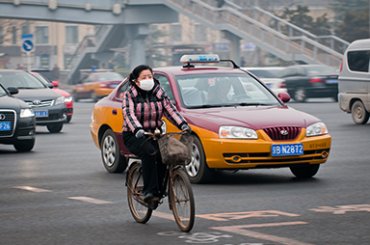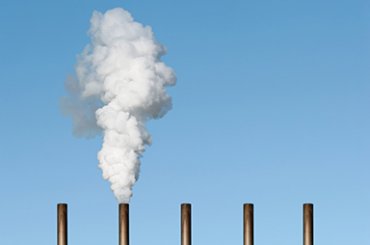The EU’s green power politics
The EU is leading the charge in the battle against climate change. With its various ‘green’ measures, it is pressuring other countries to follow suit. This is good news for the climate, but it pushes up against the limits of the law, argues lawyer Natalie Dobson.
This blog was published on 15 March 2019 on the climate blog of the NRC.

In the landmark Urgenda case, the Hague Court of Appeal ruled that the Dutch State needed to do more to combat the ‘immediate threat’ posed by global warming, leading to more than one raised eyebrow. Were the judges now taking the place of the lawmakers? The court did not believe this to be the case, though many politicians vehemently disagreed. While perhaps less visible, a comparable tension can also be seen on the international plain. Here however, it is the lawmakers who are sitting in each other’s seats. Essentially, the question is whether the one actor (the European Union, for example) is permitted to ‘force’ others to do more to prevent climate change. This pressure does not proceed through the courts, but through trade measures.
Take aviation, for example. The EU tried to include aviation in its Emission Trading System (Directive 2008/101). The Air Transport Association of America lodged a complaint against this move with the European Court in Luxembourg (the ATAA case). The original directive stated that international airlines should pay for their CO2 emissions generated throughout the entire duration of flights to and from EU airports. This therefore includes flights outside of the EU, above the open seas and even above their own territory. The scope of the directive was eventually restricted following pressure from the US, China and India. It is interesting to note, however, that the European Court found this measure to be in accordance with international law.
Another example is the European energy directive, which requires that a substantial percentage of energy consumed by the individual member states satisfies strict European sustainability requirements. Such ‘sustainable’ energy is then automatically more appealing on the common market. In this way the EU influences the entire energy market, both inside and outside of the EU.
The EU de facto enforces its own policy on international producers.
European rules
Through such ‘green’ trade measures, the EU de facto enforces its own policy on international producers. A Chinese producer looking to sell his products in the EU is forced to align his production process with the sustainability rules that apply within the EU, even though his factory is located firmly within China. In this sense, the EU is sitting in the seat of other, national lawmakers.
The good news: it is very effective. Because the EU has such a large market, manufacturers are meeting – if only by necessity – the stricter sustainability requirements. To avoid having to establish two production chains, producers also satisfy these requirements for goods destined for their other markets. Global standards therefore rise. This is the so-called ‘Brussels Effect’. Stricter legislation has resulted in significant gains – both inside and outside of the EU.
However, this green trade policy is not without an economic self-interest. Take again the EU sustainability requirements for biofuels, designed to have a positive impact on the climate. These requirements are often ‘coincidentally’ also very beneficial for European producers. Critics then accuse the EU of ‘green protectionism’ or market protection packaged as sustainability policy.

Alongside its rules, the EU placed economic sanctions on competitors such as Argentina and India, accusing them of ‘dumping’ their biofuels on the European market. The World Trade Organisation (WTO) declared these sanctions to be illegal. Now the game is shifting back to the revised version of the Energy Directive (RED II) in which the new requirements for ‘sustainable’ energy for 2021 are outlined -watched with keen interest by competitors. At the same time – coincidentally or not – Argentina was confronted with fresh sanctions early in February, this time due to alleged subsidies.
Do the ends justify the means?
Legitimisation
The key question here is whether a state or supranational actor such as the EU should be allowed to force its policy upon foreign actors. Of equal importance: do the ends justify the means? The EU is taking great, green steps in the right direction, but should it be allowed to set the rules by itself? In particular for countries that are still developing?
The EU (bolstered by the European Courts of Justice in the aforementioned ATAA case) appears to believe that it has ‘unlimited jurisdiction’ to regulate how goods and services are produced if the producers want to access the European market. From the perspective of the EU, there is no issue of jurisdiction.
Yet it is time to explicitly ask the underlying question. After all, the demarcation of powers at the international level has major consequences for the protection of the constitutional state at the national level. Does the gravity of the consequences of climate change legitimise this game of musical chairs being played by the climate protectors in Brussels? With its market power, the EU can force other countries to protect the climate. But, both from a rule of law perspective and that of climate protection, it seems that it is time to develop new rules for this game.
Scientists from Utrecht University are reporting in the climate blog of the NRC on their research in the field of sustainability. They are united around the strategic theme of 'Pathways to Sustainability.

Climate change is also a health risk
A greater focus on the public health consequences of climate change could increase the urgency of climate policy, according to Guus Velders.

No one is entitled to more greenhouse gas emissions
Climate change is also a matter of ethics, argues Ingrid Robeyns.



